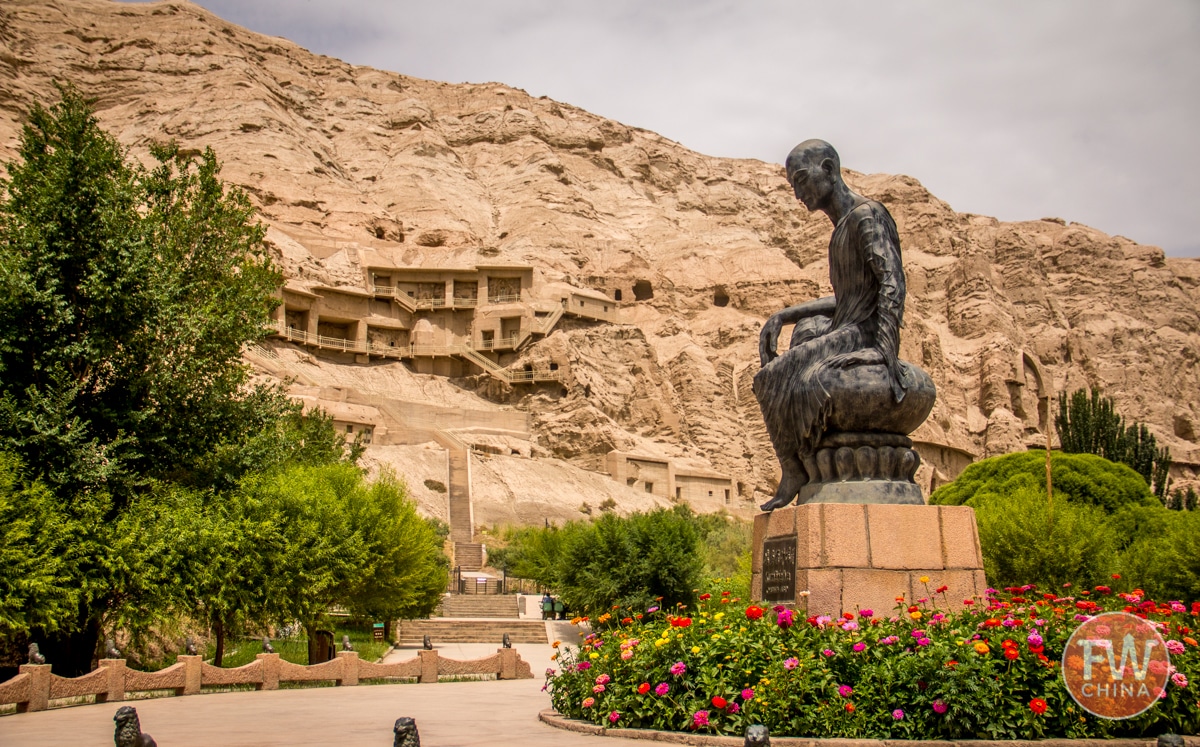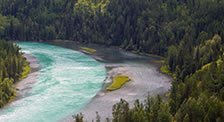What is a Yurt and How Can I Stay in One?
A yurt is a portable, circular tent traditionally constructed of wood, bamboo, felt and animal skins. Used by Turkic nomadic groups (Kazakh, Kyrgyz, Mongol, etc.), these dwellings can still be found – and rented – throughout Central Asia, including here in Xinjiang, China.
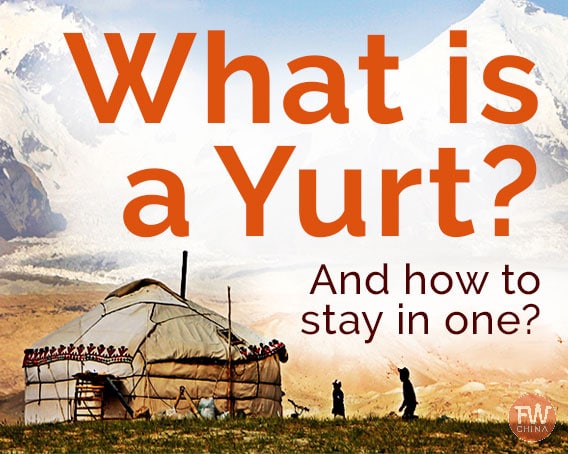
If you’re traveling to Xinjiang (China), Mongolia, Kazakhstan or any other Central Asian country, it’s more than likely that you’re going to run into one of these yurts, or “gers” as they’re sometimes referred to in Mongolia.
There are traditional yurts and there are modern yurts.
There are animal skin yurts and there are (sadly) concrete yurts.
For the majority of travelers, however, a yurt is something completely different. A yurt is an experience. It is a replacement for a hotel and an opportunity to experience another culture.
Simply put, a yurt is an adventure.
How a Yurt is Built
From the outside, the outer wool skin hides the inner workings of a yurt that are truly genius.
When I first stepped inside I thought it all looked quite complicated, but I was told by the owner that it only takes about 2-3 hours to set up and tear down.
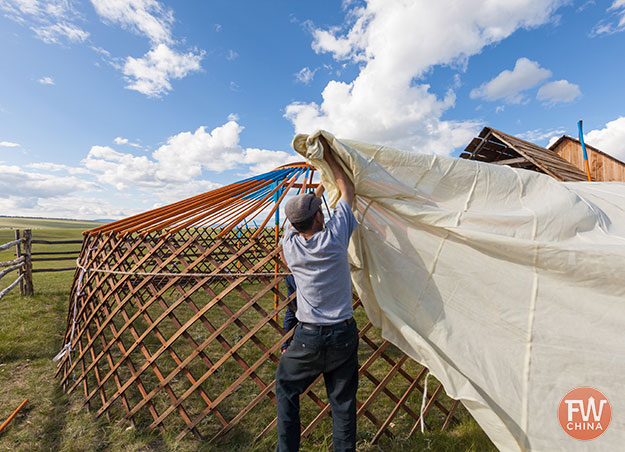
It all begins with a circular, wooden frame that is usually constructed as a lattice wall and meets at the frame of a door. The roof runs from the tops of this lattice to the center where they support the crown of the structure.
To complete the process, several layers of wool are laid across the entire frame and tied down with rope.
The end result, as I found out one cold October night, is surprisingly warm!
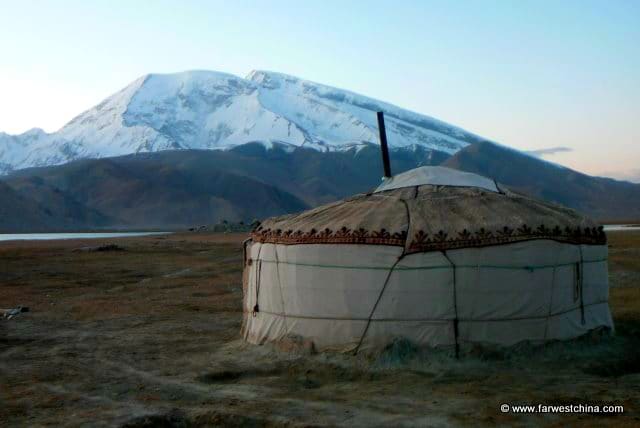
For the locals, a yurt is something that is easily set up, torn down and transported. This is why it’s a popular kind of dwelling for the herders and farmers of the Central Asian steppe.
What is Inside a Yurt?
The floor of our yurt was covered with carpets with only a few bare patches of dirt. Large blankets were stacked on one side of the yurt while a makeshift “kitchen” occupied the opposite wall.
“Where are the beds?” was the first naive question that I asked our host.
It wasn’t till later that evening that I realized that all those large blankets would be laid out into what would become a surprisingly comfortable bed.
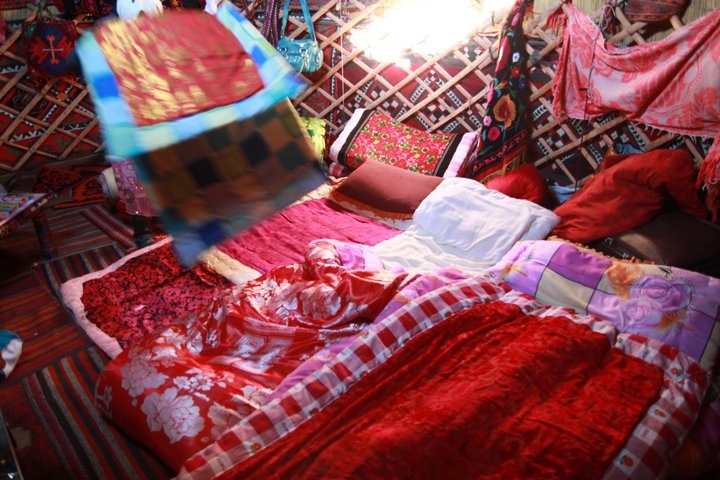
As I slept through the night snug next to my wife, it was interesting to imagine that explorers like Sven Hedin had slept in similar accommodations when he was making his historic journey along the Silk Road.
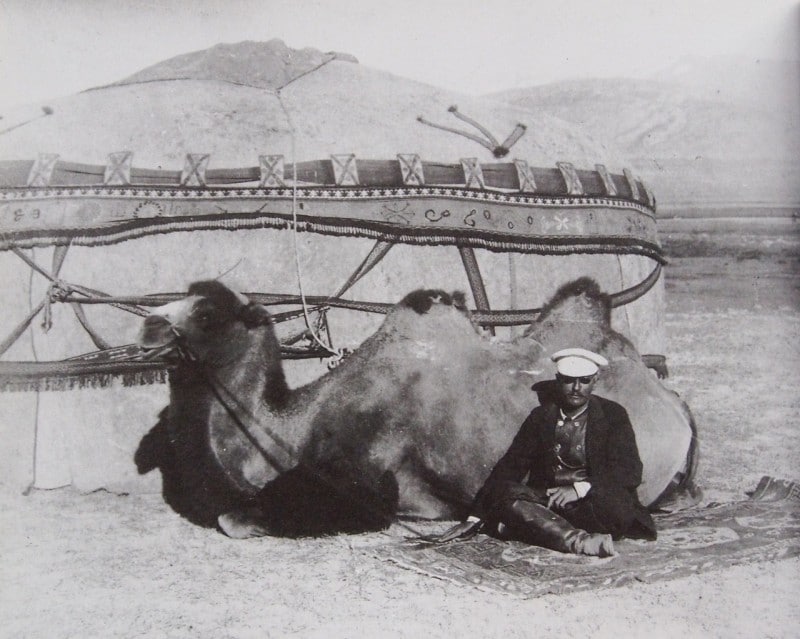
Don’t get me wrong: this is no 5-star accommodation.
However, the inside of a yurt is different than the inside of a camping tent. It’s spacious and feels more like a living space as opposed to only a place to sleep at night.
How to Stay in a Yurt in Xinjiang
The best part about staying in a yurt is that it’s more than just a place to sleep. Our host was a husband and wife who spent time talking with us and hanging out.
The wife cooked us great Kirghiz meals while the husband – ever the businessman – attempted to sell us carpets and camel rides.
The whole trip began with a local travel guide who connected us with his friends who rented out their yurt. We came to an agreement of 50 RMB per person (we had 4) which included one of the meals.
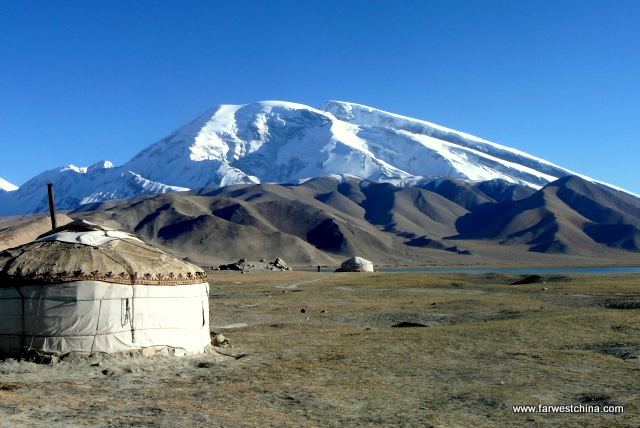
On other trips, such as one to Salimu Lake, “tourist yurts” were lined up along the shore and rented out hostel-style.
In Xinjiang, there are three primary places to experience a yurt:
- Along the Karakoram Highway, primarily at Karakul Lake
- In the Yili region, including Salimu or Sayram Lake
- Within the Altai region, including Kanas Lake
The yurts that you find at Urumqi’s Heavenly Lake are less authentic than the three mentioned above, although they will work just fine if you don’t have the time to travel far.
Perhaps you might consider all of them tourist traps, but the closer you get to the western border of Xinjiang, the more authentic they are.
Security Update for Yurt Stays
It’s worth mentioning that as of now, in 2020, it’s significantly harder to arrange a stay in a yurt in Xinjiang, China.
Government regulations stipulate that overnight stays should be registered with local authorities, but most yurt owners aren’t licensed to accept foreign guests.
In some cases, you can find a yurt owner who doesn’t care.
In other cases, it’s possible that you’ll be met in the evening by local police who will escort you to the nearest registered accommodation.
Either way, it’s getting harder and harder to stay in a yurt or even to do a homestay in Xinjiang anymore. It’s sad, but this is the reality of modern Xinjiang.




